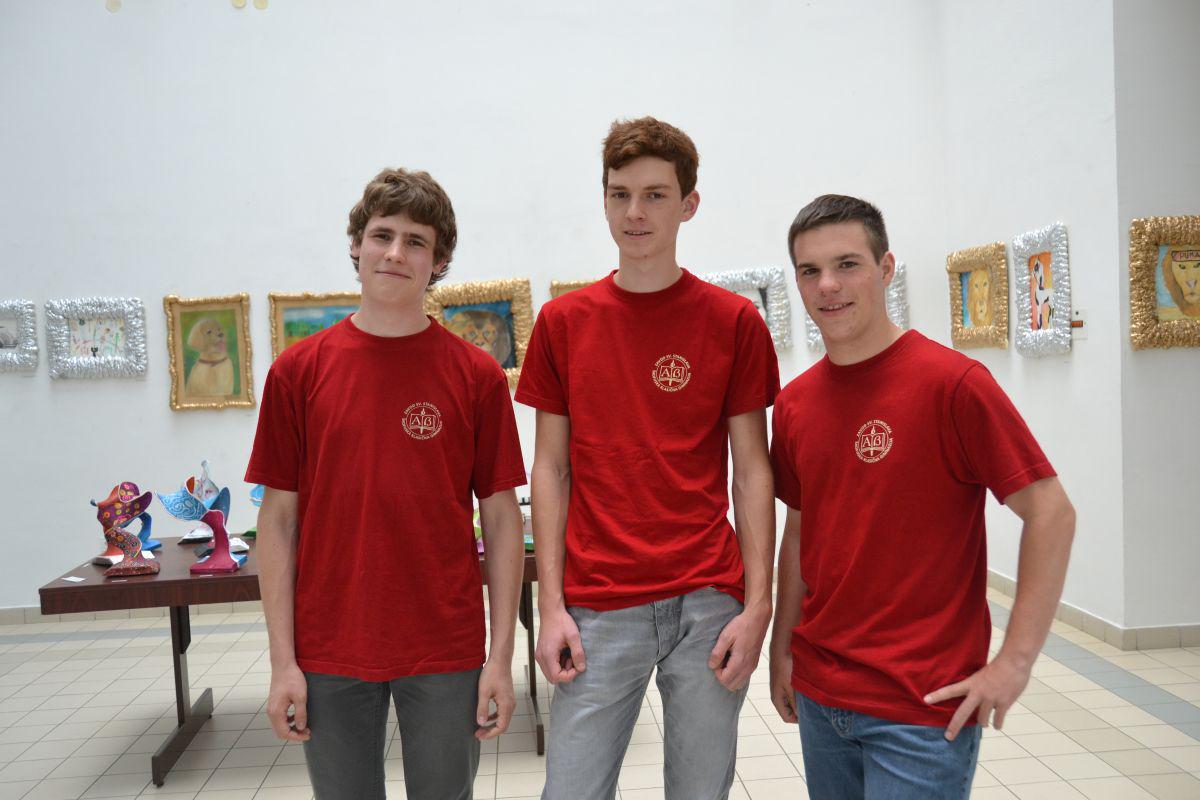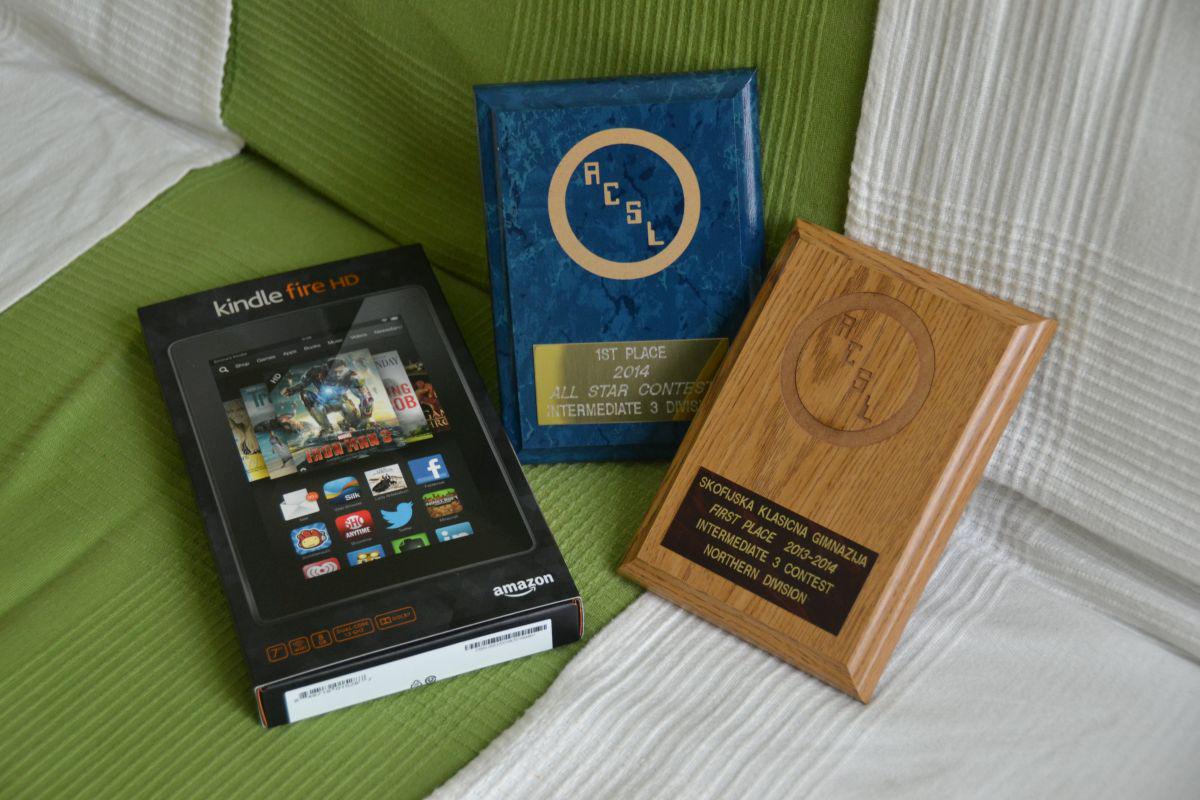

"This year I applied with the intention to win. It was the only option for me," says Matevž Poljanc, a member of the Škofijska klasična gimnazija (Diocesan Classical High School) team, together with Lojze Žust and Matej Tomc. Their team won the finals of the international computer contest American Computer Science League in Denver in the Intermediate 3 category. 77 teams were participating, coming from the USA, Europe and Canada.
This all-year computer science contest has been organized for more than three decades. The young compete in programming, and in solving computer problems. "We joined the project in 2008, at the initiative of the then principal Mr Mlakar," explained the mentor Helena Medvešek. The competition consists of several categories, with four preliminaries, in which contestants solve tests individually.
"The organizer sends us tests from the USA by e-mail. Each competitor has to write a programme in 72 hours, next logical mathematical-computer tests are solved at a school competition. After one round of preliminaries is completed, I check the results, and send them back to the USA." From the initial 10 to 15 competitors only four or five are left in the last, fourth round of the preliminaries, and they make a team which competes in the finals of the competition in the USA. At first they have 3.5 hours at their disposal for solving four programming tasks, and after a break another hour and a half is dedicated to theoretical problems.
Preparations last a whole year
In the end of May Lojze Žust, Matevž Poljanc and Matej Tomc went to Denver, Colorado. Helena Medvešek and Jure Slak help them prepare for the competition at the school computer club. "We worked all year round, always after school, and before the final competition we studied additional chapters, and solved all kinds of exercises from previous years. Lojze is an old trouper, as it was his third consecutive participation in the finals, for Matevž it was the second time, while Matej was a rookie," Medvešek described their preparations.
Matevž told us that the theoretical part of the finals was rather specific, and although the problems were not that hard to solve, the number of them was very large, so precision was of utmost importance. Programming is based on the accumulation of wider knowledge the competitors possess. "And that is in my opinion our added value, and the key to success. We had an excellent mentor who prepared us very well. We were the only team in the finals to complete the programming of all four tasks."
They organized their work very efficiently. "We work at programming together, one of us starts working immediately on the single computer we have at our disposal, the other two members of the team solve one problem each on the paper, and then we switch places at the computer. Of course we help each other all the time, if help is required," Lojze Žust explained their method of work. Although it was an important competition, they remained set in their adolescent ways. "We started with programming, and we really did very well. But in order to avoid too much pressure we told our teacher that it hadn’t gone too well, in order to lower the expectations..." Žust said. But Medvešek added that she had quite quickly realized that the boys had had no troubles cracking the hard computer problems, and that after the second place they had won last year this year they could reach a step higher.
We inquired whether scouts from the American universities followed the competition as well, but Medvešek told us that it was a school competition and which scouts usually don’t attend. "That is usual at the Computer Olympics; there more sponsors from large companies participate, and the prizes are higher. The prize awarded at this competition is rather symbolic (we won a licence for one installation of Photoshop, and one Kindle Fire reader)," she explained, and added that for them the main prize, and the main motivation, had been the travel to the USA.

































































